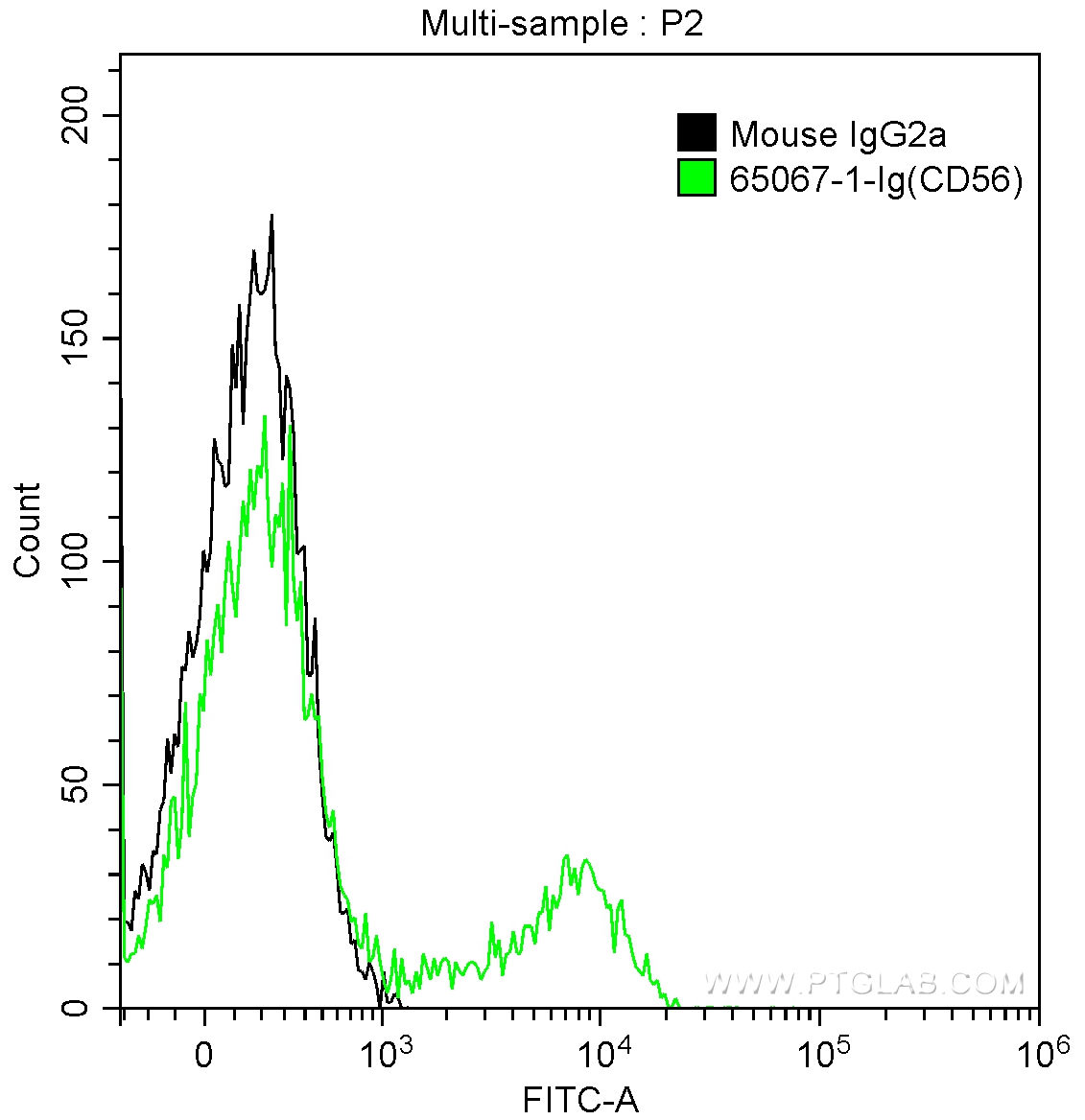验证数据展示
经过测试的应用
| Positive FC detected in | human peripheral blood lymphocytes |
推荐稀释比
| 应用 | 推荐稀释比 |
|---|---|
| This reagent has been tested for flow cytometric analysis. It is recommended that this reagent should be titrated in each testing system to obtain optimal results. | |
| Sample-dependent, Check data in validation data gallery. | |
产品信息
65067-1-Ig targets NCAM1/CD56 in FC applications and shows reactivity with human samples.
| 经测试应用 | FC Application Description |
| 经测试反应性 | human |
| 免疫原 | Acute myelogenous leukemia cell line KG-1 种属同源性预测 |
| 宿主/亚型 | Mouse / IgG2a, kappa |
| 抗体类别 | Monoclonal |
| 产品类型 | Antibody |
| 全称 | neural cell adhesion molecule 1 |
| 别名 | CD56, NCAM1, NCAM 1, NCAM, N CAM 1 |
| GenBank蛋白编号 | BC014205 |
| 基因名称 | NCAM1 |
| Gene ID (NCBI) | 4684 |
| ENSEMBL Gene ID | ENSG00000149294 |
| RRID | AB_2918374 |
| 偶联类型 | Unconjugated |
| 形式 | Liquid |
| 纯化方式 | Affinity purification |
| UNIPROT ID | P13591 |
| 储存缓冲液 | Borate buffered saline , pH 8.2 |
| 储存条件 | Store at 2-8°C. Stable for one year after shipment. |
背景介绍
Neural cell adhesion molecule 1 (NCAM1, also known as CD56) is a cell adhesion glycoprotein of the immunoglobulin (Ig) superfamily. It is a multifunction protein involved in synaptic plasticity, neurodevelopment, and neurogenesis. NCAM1 is expressed on human neurons, glial cells, skeletal muscle cells, NK cells and a subset of T cells, and the expression is observed in a wide variety of human tumors, including myeloma, myeloid leukemia, neuroendocrine tumors, Wilms' tumor, neuroblastoma, and NK/T cell lymphomas.
实验方案
| Product Specific Protocols | |
|---|---|
| FC protocol for NCAM1/CD56 antibody 65067-1-Ig | Download protocol |
| Standard Protocols | |
|---|---|
| Click here to view our Standard Protocols |
